detail profile herbert von karajan
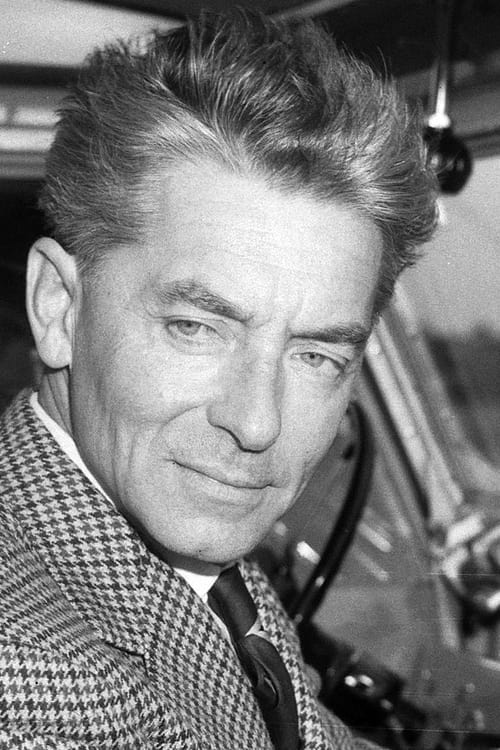
Riwayat Hidup
Herbert von Karajan (born Heribert Ritter[a] von Karajan; 5 April 1908 – 16 July 1989) was an Austrian conductor.
He was principal conductor of the Berlin Philharmonic for 34 years.
During the Nazi era, he debuted at the Salzburg Festival, with the Vienna Philharmonic, the Berlin Philharmonic, and during the Second World War he conducted at the Berlin State Opera.
Generally regarded as one of the greatest conductors of the 20th century, he was a controversial but dominant figure in European classical music from the mid-1950s until his death.
Part of the reason for this was the large number of recordings he made and their prominence during his lifetime.
By one estimate, he was the top-selling classical music recording artist of all time, having sold an estimated 200 million records.
The Karajans were of Macedonian Greek ancestry.
Herbert's great-great-grandfather, Georg Karajan (Geórgios Karajánnis, Greek: Γεώργιος Καραγιάννης), was born in Kozani, in the Ottoman province of Rumelia (now in Greece), leaving for Vienna in 1767, and eventually Chemnitz, Electorate of Saxony.
His last name, like several other Ottoman-era ones, contains the Turkish language prefix "kara", which means "black".
He and his brother participated in the establishment of Saxony's cloth industry, and both were ennobled for their services by Frederick Augustus III on 1 June 1792, thus adding the prefix "von" to the family name.
This usage disappeared with the abolition of Austrian nobility after World War I.
The surname Karajánnis became Karajan.
Although traditional biographers ascribed a Slovak and Serbian or simply a Slavic origin to his mother, Karajan's family from the maternal side, through his grandfather who was born in the village of Mojstrana, Duchy of Carniola (today in Slovenia), was Slovene.
Aromanian heritage has also been claimed.
Through the Slovene line, Karajan was related to the Slovenian-Austrian composer Hugo Wolf.
He also seems to have known some Slovene.
Heribert Ritter von Karajan was born in Salzburg, Austria-Hungary, the second son of senior consultant Ernst von Karajan (1868–1951) and Marta (née Martha Kosmač; 1881–1954) (married 1905).
He was a child prodigy at the piano.
From 1916 to 1926, he studied at the Mozarteum in Salzburg with Franz Ledwinka (piano), Franz Zauer (harmony), and Bernhard Paumgartner (composition and chamber music).
He was encouraged to concentrate on conducting by Paumgartner, who detected his exceptional promise in that regard.
In 1926 Karajan graduated from the conservatory and continued his studies at the Vienna Academy, studying piano with Josef Hofmann (a teacher with the same name as the pianist) and conducting with Alexander Wunderer and Franz Schalk.
Karajan made his debut as a conductor in Salzburg on 22 January 1929.
The performance got the attention of the general manager of the Stadttheater in Ulm and led to Karajan's first appointment as assistant Kapellmeister of the theater.
His senior colleague in Ulm was Otto Schulmann.
After Schulmann was forced to leave Germany in 1933 with the NSDAP takeover, Karajan was promoted to first Kapellmeister.
.
.
.
Source: Article "Herbert von Karajan" from Wikipedia in English, licensed under CC-BY-SA 3.
0.
Info Pribadi
Peran Yang Di Mainkan Herbert von Karajan
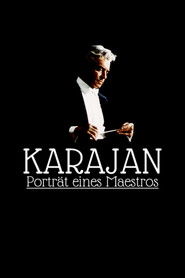 An account of the life and...
An account of the life and...Karajan: Portrait of a Maestro 2019
An account of the life and work of controversial German orchestra conductor Herbert von Karajan (1908-89), celebrated as one of the greatest musicians of the twentieth century.
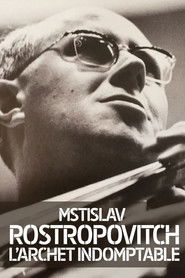 The Indomitable Bow is a unique...
The Indomitable Bow is a unique...Rostropovich: L'archet Indomptable 2019
The Indomitable Bow is a unique portrait of Mstislav Rostropovich, a formidable personality as well as a complex, deeply political musician constantly engaged in a whirlwind of activities. Including unreleased documents, archive films, interviews and concert performances from this key figure of the 20th century, The Indomitable Bow is a remarkable testimony of the life and work of the legendary Slava
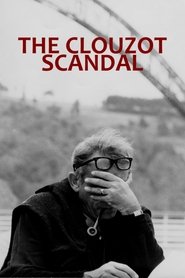 Great filmmakers claim the artistic influence...
Great filmmakers claim the artistic influence...The Clouzot Scandal 2017
Great filmmakers claim the artistic influence of French director Henri-Georges Clouzot (1907-1977), a master of suspense, with a unique vision of the world, who knew how to offer both great shows and subtle studies of characters. Beyond the myth of the tyrannical director, a contrasting portrait of a visionary, an agitator, an artist against the system.
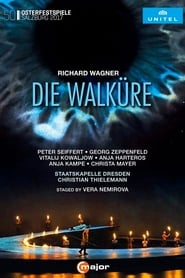 Die Walkre The Valkyrie WWV 86B...
Die Walkre The Valkyrie WWV 86B...Wagner: Die Walküre 2017
Die Walküre (The Valkyrie), WWV 86B, is the second of the four music dramas that constitute Richard Wagner's Der Ring des Nibelungen, (English: The Ring of the Nibelung). It was performed, as a single opera, at the National Theatre Munich on 26 June 1870, and received its first performance as part of the Ring cycle at the Bayreuth Festspielhaus on 14 August 1876.
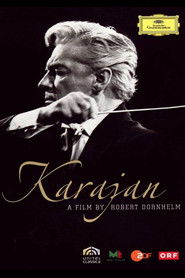 With a career that includes a 35...
With a career that includes a 35...Karajan: Beauty As I See It 2008
With a career that includes a 35-year tenure as composer of the Berlin Philharmonic and record sales topping 200 million, Herbert von Karajan is one of the most legendary figures in 20th-century classical music. Comprised of archival footage, performance highlights and interviews with the likes of Anne-Sophie Mutter, Christa Ludwig and Seiji Ozawa, this retrospective chronicles the life and times of the iconic Austrian maestro.
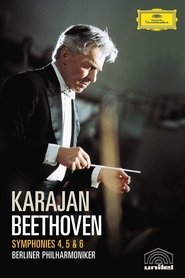 Herbert von Karajan directs the Berlin...
Herbert von Karajan directs the Berlin...Karajan: Beethoven - Symphonies 4, 5 & 6 2005
Herbert von Karajan directs the Berlin Philharmonic in an Italiannate take of Beethoven's Fourth Symphony and an assured rendering of the Fifth, while the "Pastoral" Symphony, conceived and directed by Hugo Niebeling in 1967, is a revolutionary mix of styles - Fantasia meets Expressionism meets film noir.
 Documentary about sixteen great conductors of...
Documentary about sixteen great conductors of...The Art of Conducting: Great Conductors of the Past 1993
Documentary about sixteen great conductors of the 20th century.
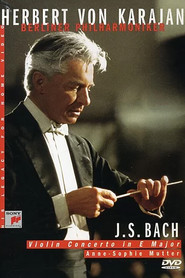 Worldrenowned conductor Herbert Von Karajan directs...
Worldrenowned conductor Herbert Von Karajan directs...Karajan: Bach: Violin Concerto No. 2: New Year's Eve Concert 1984 1984
World-renowned conductor Herbert Von Karajan directs the Berlin Philharmonic Orchestra in this performance of Bach's Violin Concerto No. 2 for a New Year's Eve concert filmed in Berlin in 1984. Together with noted violinist Anne-Sophie Mutter and gifted vocalists Judith Blegen, Helga Muller Molinari, Francisco Araiza and Robert Holl, Karajan and his orchestra present a remarkable performance of Bach's masterwork.
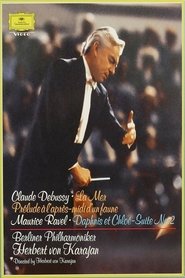 Herbert von Karajan was a master...
Herbert von Karajan was a master...Karajan conducts Ravel and Debussy 1979
Herbert von Karajan was a master of the fine blending of acoustic colours. This quality is shown to its best advantage in this programme of masterpieces of French Impressionism. Works include Debussy’s multifaceted La Mer, and his lascivious, dream-like Prélude à l’après-midi d’un faune, and Ravel’s Suite No. 2 from Daphnis et Chloé, a work which combines shimmering transience with uncompromising energy.
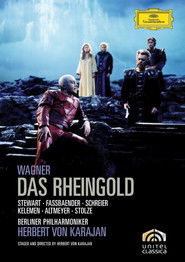 This 1978 studio production of the prologue...
This 1978 studio production of the prologue...Wagner: Das Rheingold 1978
This 1978 studio production of the prologue to Wagner's masterpiece is the only segment of the famous Salzburg Festival/Metropolitan Opera productions, first seen in the 1960s, that made it to film. Based on one of those original productions, Georges Wakhevitch produced stage settings and transformations that supported Karajan's concept with every possible means. Herbert Von Karajan's staging is in the epic style of another age, emphasizing the dignity of the gods rather than their all too human failings. With the singers - foremost among them Peter Schreier - Karajan had an ensemble that fully conformed to his intentions.
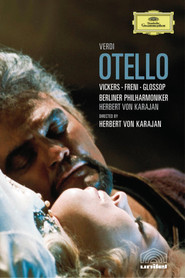 Herbert von Karajan directed this film...
Herbert von Karajan directed this film...Otello 1973
Herbert von Karajan directed this film of Verdi’s Shakespearan masterpiece as well as conducting the Berlin Philharmonic. As the tragic Moor of Venice, arguably his greatest role, John Vickers (in the words of critic David Cairns) "commands both the notes and the moral grandeur of the part. … And he has the aura of greatness – greatness of heart, of bearing, of musical and dramatic conception". Mirella Freni is a heartbreakingly lovely and fragile Desdemona, while the fine English baritone Peter Glossop plays the villainous Jago.
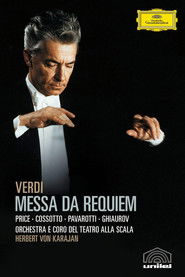 Herbert von Karajan conducts La Scala...
Herbert von Karajan conducts La Scala...Verdi – Messa da Requiem 1967
Herbert von Karajan conducts La Scala Orchestra and Chorus with soloists Leontyne Price, Fiorenza Cossotto, Luciano Pavarotti, and Nicolai Ghiaurov.
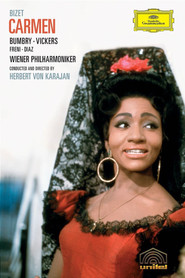 This spectacular opera film was taped...
This spectacular opera film was taped...Bizet Carmen 1967
This spectacular opera film was taped in 1967 and is based on the 1966 Salzburg Festival production directed by Herbert von Karajan himself, who also conducts the fabulous Vienna Philharmonic Orchestra. The production features the three greatest exponents of their respective roles at the time: Grace Bumbry’s magnificently seductive-toned Carmen, Mirella Freni’s ineffably lovely, touching Micaëla and Jon Vickers’s thrillingly manic-depressive Don José. On its release the film was hailed by Die Presse, (Vienna) as a “unique artistic event”, while Le Monde felt that Karajan’s production brought “a whole new dimension” to the opera, “combined with a magisterial interpretation”. A classical and utterly dramatic approach to probably the world's most beloved opera – Karajan’s Carmen is as much a delicacy for opera fans as it is a perfect starter for newcomers.
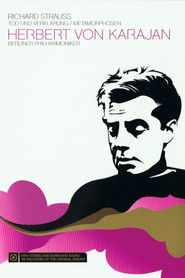
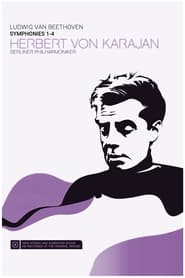
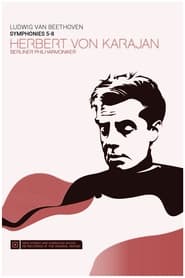
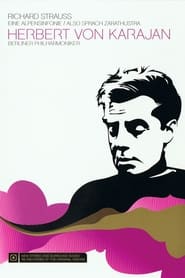
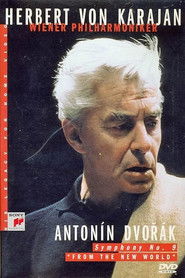 The Wiener Philharmoniker conducted by Herbert...
The Wiener Philharmoniker conducted by Herbert...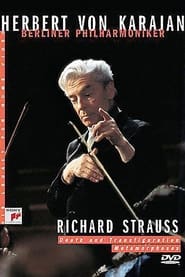
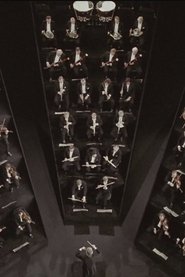 A concertfilm using innovative cinematic techniques...
A concertfilm using innovative cinematic techniques...